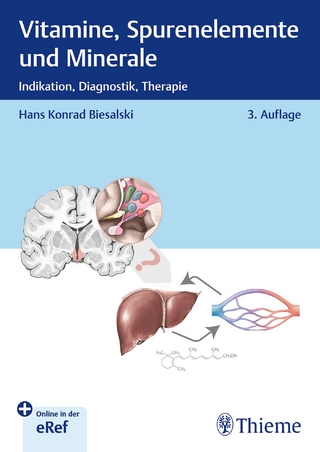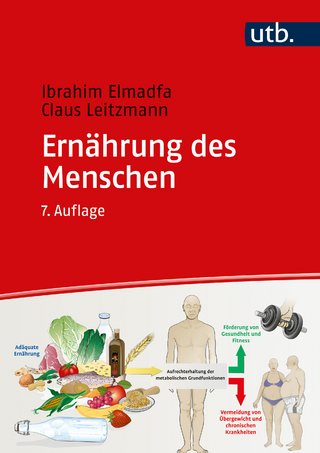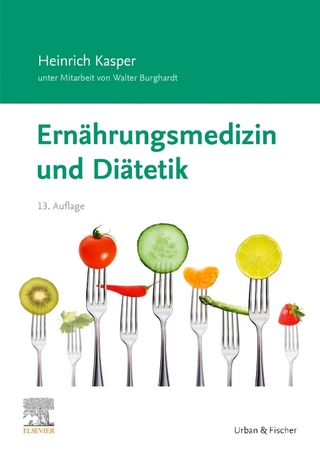
Evolution of the Human Diet
Oxford University Press Inc (Verlag)
978-0-19-518346-7 (ISBN)
- Titel ist leider vergriffen;
keine Neuauflage - Artikel merken
We are interested in the evolution of hominin diets for several reasons. One is the fundamental concern over our present-day eating habits and the consequences of our societal choices, such as obesity prevalent in some cultures and starvation in others. Another is that humans have learned to feed themselves in extremely varied environments, and these adaptations, which are fundamentally different from those of our closest biological relatives, have to have had
historical roots of varying depth. The third, and the reason why most paleoanthropologists are interested in this question, is that a species' trophic level and feeding adaptations can have a strong effect
on body size, locomotion, "life history strategies", geographic range, habitat choice, and social behavior. Diet is key to understanding the ecology and evolution of our distant ancestors and their kin, the early hominins. A study of the range of foods eaten by our progenitors underscores just how unhealthy many of our diets are today. This volume brings together authorities from disparate fields to offer new insights into the diets of our ancestors. Paleontologists,
archaeologists, primatologists, nutritionists and other researchers all contribute pieces to the puzzle. This volume has at its core four main sections: ·
Reconstructed diets based on hominin fossils--tooth size, shape, structure, wear, and chemistry, mandibular biomechanics · Archaeological evidence of subsistence--stone tools and modified bones · Models of early hominin diets based on the diets of living primates--both human and non-human, paleoecology, and energetics · Nutritional analyses and their implications for evolutionary medicine New techniques for gleaning
information from fossil teeth, bones, and stone tools, new theories stemming from studies of paleoecology, and new models coming from analogy with modern humans and other primates all contribute to our understanding. When
these approaches are brought together, they offer an impressive glimpse into the lives of our distant ancestors. The contributions in this volume explore the frontiers of our knowledge in each of these disciplines as they address the knowns, the unknowns, and the unknowables of the evolution of hominin diets.
Peter S. Ungar is Professor of Anthropology at the University of Arkansas.
I. Introduction
1: Alan Walker: Early Hominin Diets: Overview and Historical Perspectives
2: Amanda G. Henry and Bernard Wood: Whose Diet? An Introduction to the Hominin Fossil Record
II. The Hominin Fossil Record
3: Peter W. Lucas: The Evolution of the Hominin Diet from a Dental Functional Perspective
4: Peter S. Unger: Dental Functional Morphology: The Known, the Unknown, and the Unknowable
5: Mark F. Teaford: What Do We Know and Not Know about Diet and Enamel Structure
6: David J. Daegling and Fredrick E. Grine: Mandibular Biomechanics and the Paleontolgical Evidence for the Evolution of Human Diet
7: Mark F. Teaford: What Do We Know and Not Know about Dental Microwear and Diet?
8: Matt Sponheimer, Julia Lee-Thorp, and Darryl de Ruiter: Icarus, Isotopes, and Australopith Dies
9 Reconstructing Early Hominin Diets Evaluating Tooth Chemistry and Macronutrient Composition: Margaret J. Schoeinger:
III. The Archaeological Record
10: Robert J. Blumenschine and Briana L. Pobiner: Zooarchaeology and the Ecology of Oldowan Hominin Carnivory
11: Henry t. Bunn: Meat Made Us Human
12: John J. Shea: Lithic Archaeology, or, What Stone Tools Can (and Can't) Tell Us about Early Hominin Diets
IV. Paleoecology and Modeling
13: Theoretical and Actualistic Ecobotanical Perspectives on Early Hominin Diets and Paleoecology
14: Kaye E. Reed and Amy L. Rector: African Pliocene Paleoecology: Hominin Habitats, Resources, and Diets
15: Modeling the Significance of Paleoenvironmental Context for Early Hominin Diets
16: Richard Wrangham: The Cooking Enigma
17: Joanna E. Lambert: Seaonality, Fallback Strategies, and Natural Selection: A Chimpanzee and Cercopithecoid Model for Interpreting the Evolution of Hominin Diet
18: William R. Leonard,Marcia L. Robertson, and J.Josh Snodgrass: Energetic Models of Human Nutritional Evolution
V. Implications of Studies of Early Hominin Diets
19: Loren Cordain: Implications of Pilo-Pleistocene Hominin Diets for Modern Humans
20: S. Boyd Eaton: Preagricultural Diets and Evolutionary Health Promotion
21: Peter S. Unger: Limits to Knowledge on the Evolution of Hominin Diet
Index
| Zusatzinfo | 22 halftones, 45 line illustrations |
|---|---|
| Verlagsort | New York |
| Sprache | englisch |
| Gewicht | 717 g |
| Themenwelt | Medizin / Pharmazie ► Gesundheitsfachberufe ► Diätassistenz / Ernährungsberatung |
| Naturwissenschaften ► Biologie ► Evolution | |
| Naturwissenschaften ► Biologie ► Humanbiologie | |
| ISBN-10 | 0-19-518346-0 / 0195183460 |
| ISBN-13 | 978-0-19-518346-7 / 9780195183467 |
| Zustand | Neuware |
| Haben Sie eine Frage zum Produkt? |
aus dem Bereich


